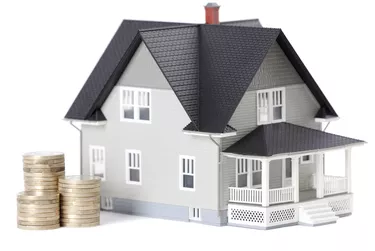
To obtain affordable rental housing or maintain your rental during hard times, contact an agency that offers help directly to renters. Private charities can help community residents with rental deposits and monthly rent. You also can get help from federal rental assistance programs, which are administered at the local level through government agencies and private nonprofit organizations. If a particular organization can't help you, it may refer you to an organization that can. Program funding, availability and eligibility criteria vary. Some programs offer financial counseling and employment services to ensure you can continue paying for a rental after receiving assistance.
Religious Charities
Video of the Day
Charities can help tenants at risk of homelessness. Catholic Charities USA offers help at the national level and the local level in 24 states. A list of sub-agencies that offer help with rent can be found on the CCUSA website. Its Tenant Based Rental Assistance offers a rent subsidy to very low-income families of all faiths, with specific guidelines. For example, Catholic Charities of Southern Nevada can help single parents and married couples with children in Las Vegas for 6 months to one year. Other church- or faith-based charities, such as Lutheran Social Ministry, can offer emergency rent help to low-income tenants facing eviction. In some locations, funds and availability may be more limited.
Video of the Day
Eviction Prevention Programs
The federally-funded Eviction Prevention Program is administered by charities, government and nonprofits groups at the local level. The EPP helps low- and moderate-income households facing imminent eviction. It provides funds to pay up to one month of back rent, or arrears, and is a short-term solution rather than a permanent one.
Depending on the organization that administers the EPP, you may receive more than one month of rent. For example, New York City's Coalition for Homelessness offers a one-time grant of $1,000, on average. Your landlord must be willing to cooperate with the program and discontinue the eviction. You also must demonstrate that financial hardship or extenuating circumstances beyond your control, such as a serious illness or other crisis, led to missed rent payments, and you are able to continue regular rent payments on your own.
USDA Rural Rental Assistance
The Department of Agriculture finances homes and multiple-unit housing complexes in designated rural and suburban communities for low- and very low-income individuals. It also offers rental subsidies to eligible households that rent USDA-financed housing. Very low-income tenants receive priority assistance. They earn less than 50 percent of the local median income, while low-income applicants earn between 80 percent and 50 percent of the median income. The rural housing owner must apply with the USDA to participate in the Rural Rental Assistance program. To obtain contact information for the program office nearest you, use the drop-down menu, located in the top right corner of the USDA's webpage.
HUD's Assistance Programs
The Department of Housing and Urban Development funds much of the country's rental assistance programs through state and local housing agencies. It also oversees popular rental assistance programs: The Section 8 Housing Voucher Program and the Public Housing Program. Section 8 provides a rent subsidy so you can afford rent for privately owned housing, while public housing helps cover rent for government-owned properties. Dwellings range from single-family homes, to condos and apartments. You must meet low- and extremely low-income limits for your area. HUD also inspects rentals to ensure they meets health and safety standards. Contact your local Public Housing Agency to apply for Section 8 or public housing.